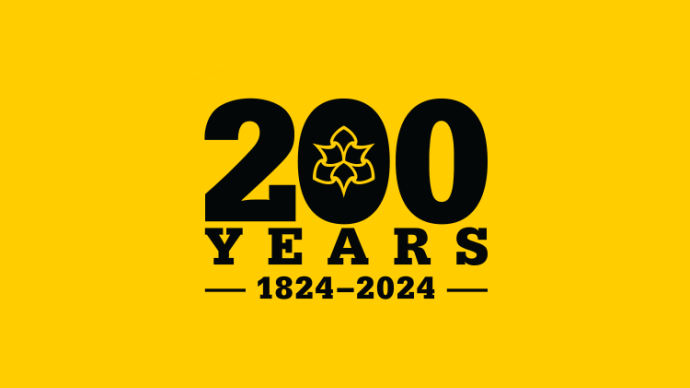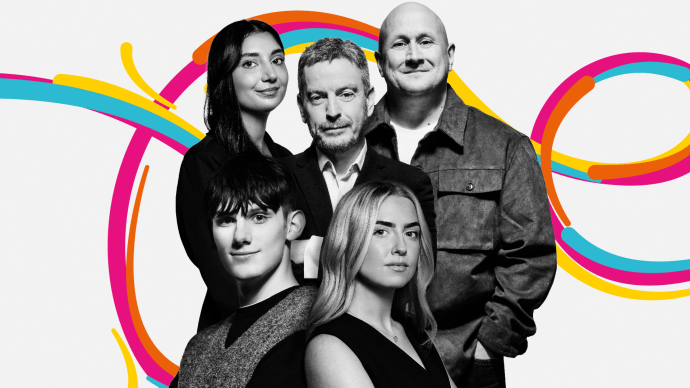Granny Jackson’s Dead: An immersive performance
Page header image

Standfirst
Proudly driving progress for 200 years, the University champions innovation and the use of new technology.
This piece explores how tradition, research and cutting-edge technology came together to take the audience to a wake in Belfast as part of an immersive performance, Granny Jackson’s Dead.
Main story
In the unforgettable live experience, the audience gathered at a Georgian townhouse to hear Granny Jackson’s story unfold - an exploration of grief, loss, and commemoration. This was made possible by augmented reality, virtual reality and immersive technology.
The production served a broader purpose than entertainment. It was a research project involving Big Telly Theatre Company and Dr Eleanor O’Keeffe at NatCen working with Manchester Met staff from the Department of Art and Performance and the School of Digital Arts (SODA).
It aimed to explore what grief technology might do if we let it into our lives. It questioned if we can or should use technology in a healthy way to help us mourn and remember. It also looked at how immersive theatre can be used to bring people together to debate and respond to important questions.
Collaborating with NatCen and Big Telly to explore these ideas in such an innovative, creative, and engaging way has transformed the approach to working across disciplines.
We aim to push and encourage experimentation in the arts and think about how theatre performance can be a force for good in wider society.
Grief can be a difficult topic to discuss with people. The performance showed that using fiction and maintaining audience enjoyment can enable meaningful conversations and the capturing of responses.
Michael Pinchbeck, Professor of Theatre, said: “Our performance research has a long-term interest in grief, memory, and commemoration. The Covid-19 pandemic showed how inescapable technology was for many forms of social interaction, including mourning.
“As the research lead my focus was on how we grieve and how digital technology can help or hinder that process. The show asks some difficult questions about that and enables researchers to observe audience reactions.
“Conversations are started in the performance that we would continue afterwards to inform our research. The focus for me is about how immersive theatre can be a space to ask questions and how audiences can engage in those questions differently.”
Dr Joshua Edelman, Reader in Drama and Contemporary Performance, added: “Our job in the performance research group is to develop Manchester Met’s research relationships with really interesting companies in the theatre world and to work with them to explore ideas.
“We aim to push and encourage experimentation in the arts and think about how theatre performance can be a force for good in wider society.”
The production provided the perfect opportunity to bring together performance and theatre with digital technologies in a way that hasn’t been done before. Kirsty Fairclough is Professor in Screen Studies at the University’s School of Digital Arts (SODA), she said: “I lead on research and innovation for SODA and my involvement was ensuring that the digital technology was a key part of the performance.
“We hadn’t done anything like this before, so it was a fantastic opportunity for us to test out the technologies that we have. It was a very exciting project for SODA, and we now hope to develop it further.”
Following the success of the production, which ran as part of the Northern Ireland Science Festival, there are plans to bring it to the UK. The University and Big Telly Theatre Company has also applied for funding to produce the sequel, ‘Darren Jackson’s Wedding’, at which the audience would be guests.
The continued collaboration with Big Telly provides the potential for future projects using technology and immersive theatre to ask challenging questions about the world we live in. It also gives students access to industry expertise, with Big Telly coming into the University to share their insight.
Look out for Granny Jackson’s Dead coming to Manchester in the Autumn.
More stories
Discover more of our creativity
-
![A female nurse sat talking and smiling to a male patient]()
Designing to Support People with Dementia
Find out more -
![Letters on colourful panels that spell mental health are hanging from brick arches in a garden where people are sat together.]()
A Safety Net for Mental Health
Find out more -
![A female sat behind a computer screen]()
Making Creative Content Distribution Fair
Find out more -
![A computer generate image of the lab. There are students gathered around a table in the room, and some are looking at bright artwork on the walls.]()
Robotics Living Lab Launching
Find out more -
![Gemma Potter, Paul Micklethwaite and Paul Bason are standing in the design studio, smiling at the cameria]()
Design Factory Manchester launches
Find out more
About 200 years
Manchester Met celebrates two centuries of driving progress through excellent education and research.
-
![200 years 1824-2024]()
200 years
Find out more -
![Siemens Chief Executive Carl Ennis posing with the firms degree apprentices]()
Driving economic growth
Find out more -
![Two nurses standing together and smiling]()
Transforming Health
Find out more -
![A digital image of the university's arts buildings]()
Championing Creative Excellence
Find out more









